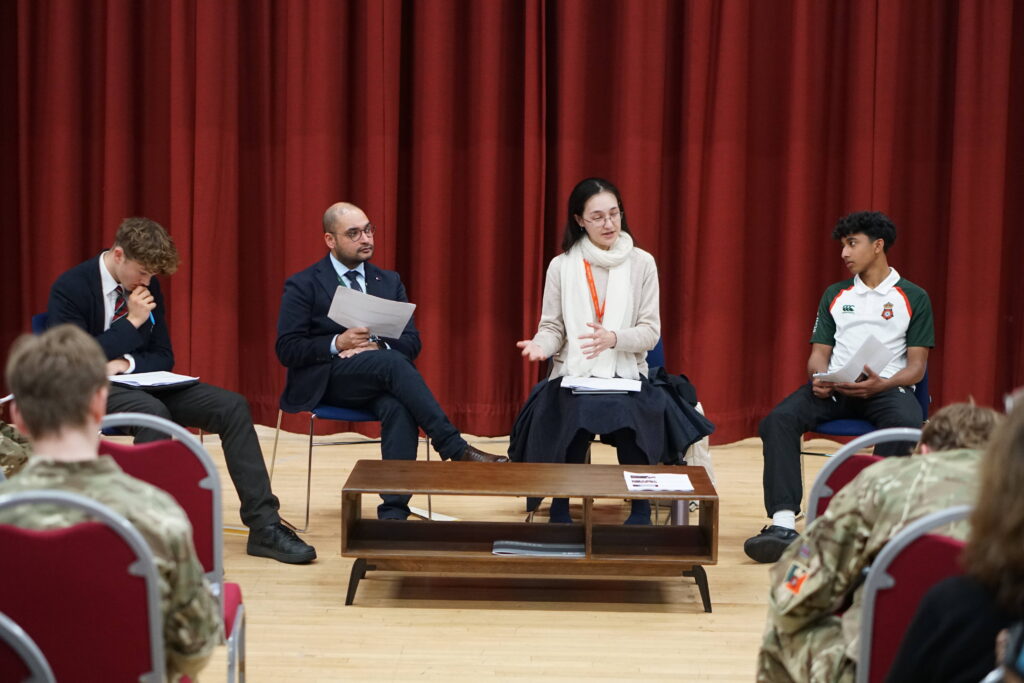The English Department was delighted to welcome Dr Jessica Chiba, Assistant Professor at the University of Birmingham’s Shakespeare Institute in Stratford-upon-Avon, to deliver a highly engaging lecture on William Shakespeare’s Macbeth and to participate in a cross-curricular seminar linking Hamlet with the discipline of philosophy.
With our Fourth Form students currently studying Shakespeare’s shortest tragedy, Dr Chiba was able to directly address, and bolster, material already being delivered in our classrooms. For example, she began her lecture by examining the similarities between the play and its source material: Raphael Holinshed’s Chronicles of England, Scotland and Ireland. Interestingly, Dr Chiba explained that while Banquo is traditionally viewed as the play’s moral compass and the foil to Macbeth’s despotism, this is not the case in Holinshed’s historical account of the regicide of King Duncan. Rather, Holinshed reveals that Banquo conspired with Macbeth to murder the reigning monarch. Dr Chiba then moved on to discuss the concept of the divine right of kings and how contemporary debates surrounding this idea were rife, especially in response to the power wielded by the recently enthroned Stuart ruler. Contrary to King James I’s steadfast belief in his God-appointed authority, the Scottish historian and humanist scholar George Buchanan explored the consequences of tyrannical rule in his treatise on the subject, A dialogue, concerning the due Priviledge [sic] of Government in the Kingdom of Scotland, which directly challenged James’ perceived methods of sovereignty. Dr Chiba’s lecture was followed by a selected panel of Fourth Form students interviewing her with questions ranging from the compelling character of Lady Macbeth to Aristotle’s theory of tragedy.
With our Upper Sixth students having studied Hamlet during the first year of their A Level course, the opportunity to revise the play with a visiting academic was one not to be missed. Moreover, due to Dr Chiba’s area of research being the intersection of Shakespeare and philosophy, we were delighted to welcome Sam Carney, an Upper Sixth student of Religious Studies who had independently read Hamlet, to contribute his ideas. In preparation for this cross-curricular seminar, the students had been tasked with reading a range of articles discussing philosophical issues relevant to the play, such as the existentialism of Hamlet’s character and Horatio’s stoicism. Dr Chiba commented that all the students had impressed her a great deal with their responses to arguments not ordinarily taught until postgraduate level.




